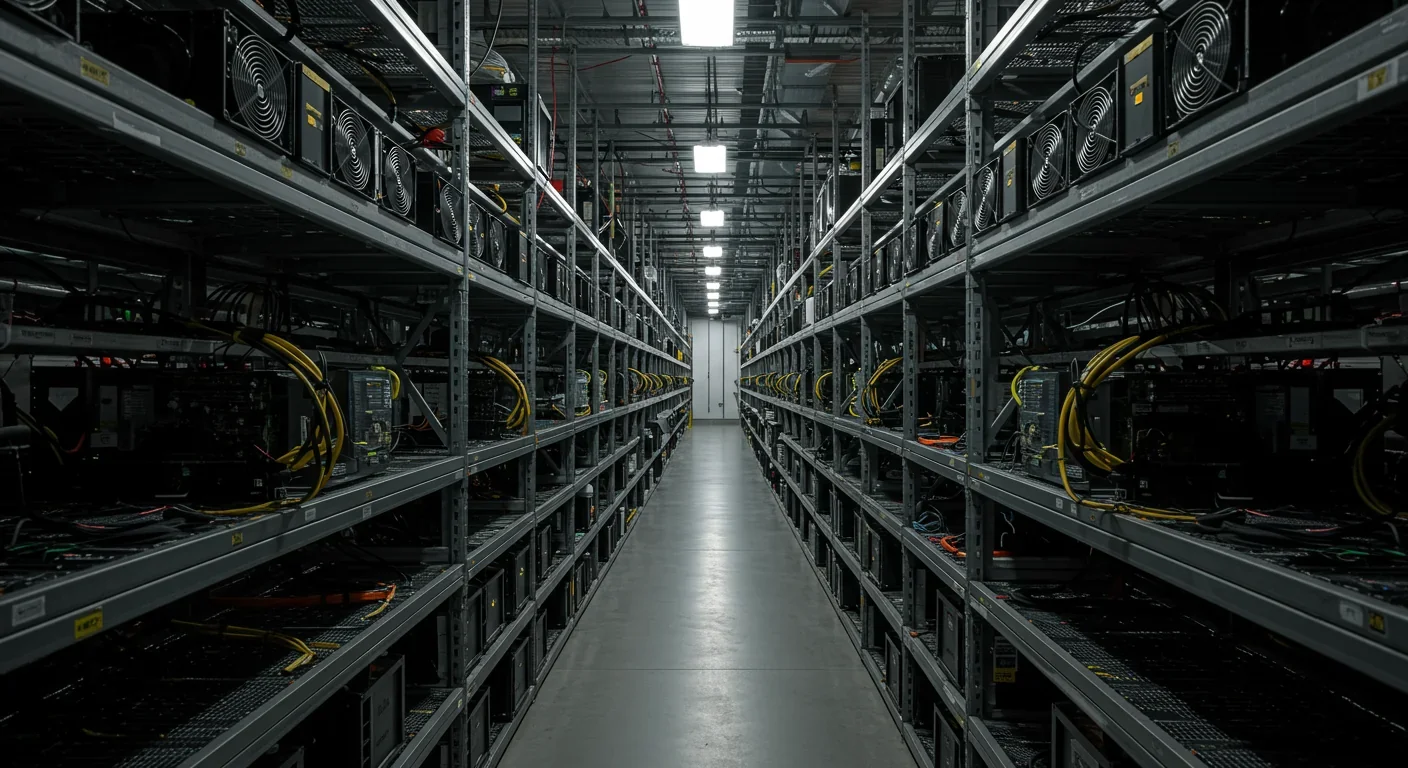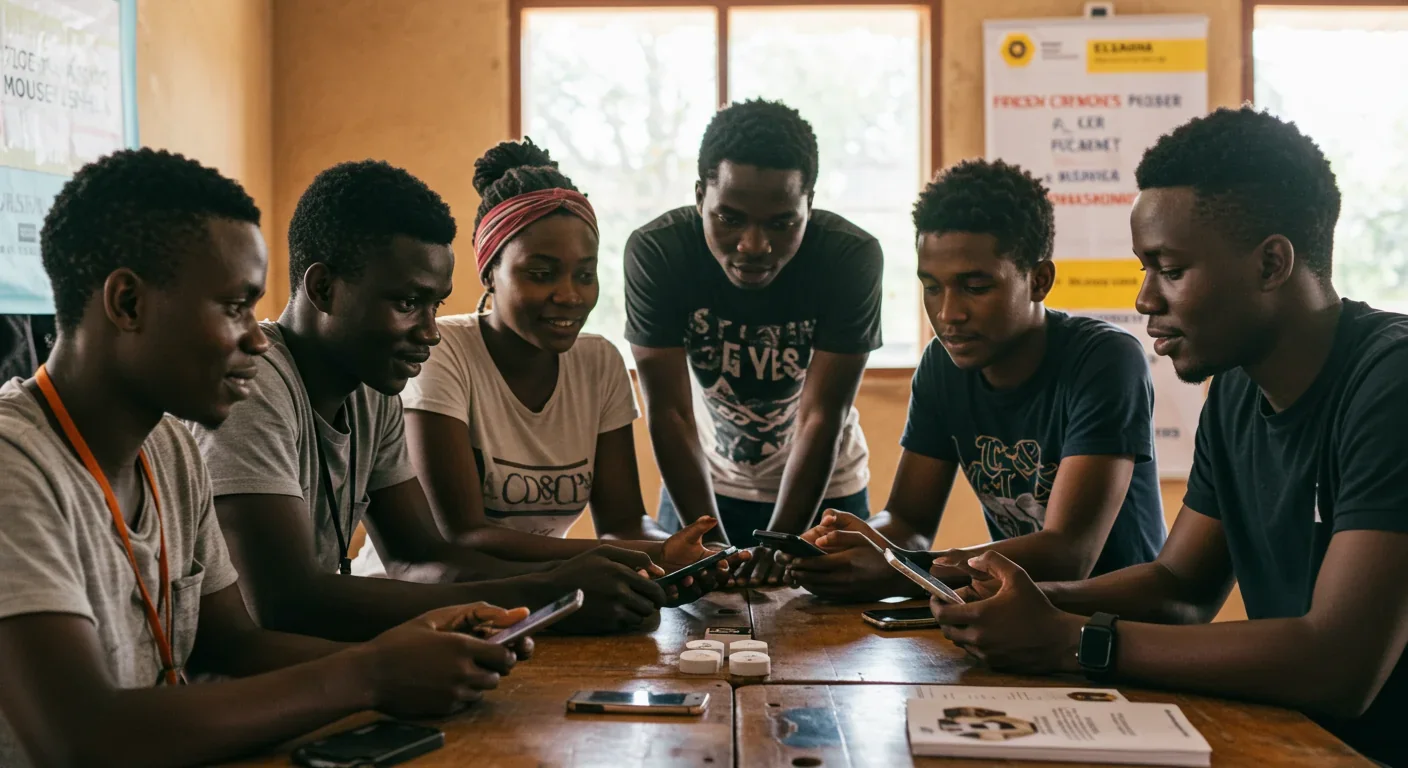The Burnout Economy: Productivity's Hidden Cost

TL;DR: Cryptocurrency has become a revolutionary tool empowering dissidents in authoritarian states to bypass financial surveillance and asset freezes, while simultaneously enabling sanctioned regimes to evade international pressure through parallel financial systems.

In 2013, as pro-democracy protesters flooded the streets of Kyiv, Ukraine's government struck back with a silent weapon: they froze bank accounts. Activists who'd mobilized thousands suddenly couldn't buy supplies or pay for safe houses. Traditional finance had become a digital prison. Then the Human Rights Foundation did something unprecedented. They sent Bitcoin. Within hours, activists who'd been financially paralyzed were back in action, coordinating protests and distributing resources. This wasn't some sci-fi fantasy, it was the moment cryptocurrency proved itself as the most powerful tool for financial resistance since smuggled gold coins.
Today, that same technology serves two masters. Dissidents in Belarus use it to escape state surveillance. Russian oligarchs use it to dodge Western sanctions. Privacy coins let activists communicate securely, they also let kleptocrats launder billions. We're watching the birth of a parallel financial system that doesn't care about borders, governments, or international law. The question isn't whether crypto will reshape geopolitics, it's whether we're ready for the world it's creating.
Here's what makes cryptocurrency different from every other financial tool in history: nobody controls it. When dissidents in Venezuela's opposition movement needed to fund operations under Maduro's surveillance state, they couldn't open bank accounts or accept wire transfers without immediate detection. Traditional money flows through chokepoints that governments monitor obsessively. Every transaction leaves a trail that leads straight to your door.
Bitcoin changed that equation. The blockchain operates across thousands of computers in hundreds of countries. There's no central server to shut down, no CEO to arrest, no headquarters to raid. When Alex Gladstein, chief strategy officer at the Human Rights Foundation, describes Bitcoin as a technology that has "saved or rescued lives," he's not exaggerating. He's documenting a fundamental shift in the balance of power between states and citizens.
The mechanics are elegantly simple. A dissident in China downloads a wallet app, memorizes a twelve-word seed phrase, and suddenly has access to a financial system the Communist Party can't freeze, confiscate, or monitor, at least not easily. No permission required, no identity verification, no government approval. In countries where banks serve as extensions of the security apparatus, this isn't just convenient, it's survival.
But the technology cuts both ways. Those same features that protect dissidents also shield sanctioned oligarchs. Russia's energy sector now uses cryptocurrency to settle oil transactions with China and India, circumventing Western financial controls designed to punish aggression. The UAE's crypto-friendly regulations have made Dubai a haven for sanctions evasion operations. Venezuela's Petro token was explicitly designed to dodge U.S. sanctions, though it failed spectacularly for unrelated reasons.
Nothing about this dynamic is new, only the technology. Authoritarian states have always weaponized finance. When Martin Luther King Jr. organized the Montgomery bus boycott in 1955, authorities attempted to freeze the bank accounts of civil rights organizations. During apartheid, South Africa used capital controls to suppress resistance movements. More recently, China's social credit system has turned financial access into a behavior modification tool, you can literally lose the ability to buy train tickets for criticizing the government online.
What's changed is the arms race. For decades, dissidents had limited options: smuggle cash across borders, use informal hawala networks, or risk electronic transfers that left obvious trails. Intelligence agencies got very good at tracking these flows. The 2001 PATRIOT Act supercharged financial surveillance in the name of counterterrorism. By 2010, the global banking system had become a panopticon where suspicious activity reports and know-your-customer rules gave states unprecedented visibility into citizens' economic lives.
Then Bitcoin arrived. Created in 2009 by the mysterious Satoshi Nakamoto, it was designed as "electronic cash" that could move peer-to-peer without intermediaries. Early adopters included libertarians, tech enthusiasts, and yes, criminals. But within a few years, human rights organizations recognized something profound: this technology fundamentally altered the power dynamic between states and individuals.
The Human Rights Foundation launched its Bitcoin Development Fund in 2020, funding projects that help activists in authoritarian regimes use cryptocurrency safely. They've supported developers building privacy tools, trained journalists on operational security, and connected dissidents with resources to protect their financial autonomy. This isn't theoretical, it's infrastructure for resistance.

Understanding why crypto works for dissidents requires grasping a few technical concepts. Traditional banking operates through trusted intermediaries. When you send money, your bank verifies you have funds, moves numbers in a ledger, and informs the recipient's bank. Governments regulate these intermediaries, which means they can compel banks to freeze accounts, report transactions, or deny service.
Cryptocurrency eliminates the intermediary. Transactions are verified by distributed networks of computers running open-source software. Want to freeze someone's Bitcoin? You'd need to control more than half the network's computing power, a feat that would cost billions and would be immediately obvious to everyone watching the blockchain.
But here's the catch: Bitcoin's blockchain is public. Every transaction is permanently recorded. If authorities can link your identity to a wallet address, they can trace every transaction you've ever made. This has led to the development of privacy coins like Monero and Zcash, which use cryptographic techniques to obscure transaction details. Monero uses ring signatures to hide who sent funds, stealth addresses to hide who received them, and RingCT to hide amounts transferred.
For dissidents, this privacy isn't about hiding wrongdoing, it's about survival. A journalist in Russia investigating corruption can't risk having sources identified through transaction trails. An activist in Egypt organizing protests can't let security services see who's funding operations. The same blockchain technologies that enable surveillance resistance are the tools these people need to do dangerous but vital work.
Yet privacy coins have become lightning rods for regulation. Exchanges delist them under pressure from financial authorities. The regulatory scrutiny on privacy coins intensifies every year, creating a cat-and-mouse game between developers building privacy features and regulators trying to mandate transparency.
While human rights advocates celebrate crypto's liberating potential, sanctions enforcement officials see a nightmare. Russia alone has used cryptocurrency to facilitate billions in trade that should be blocked under international sanctions. Chinese entities use stablecoins to move capital despite capital controls. North Korean hackers steal cryptocurrency to fund the regime's nuclear program.
The Office of Foreign Assets Control (OFAC), America's sanctions enforcement arm, has scrambled to adapt. They've published guidance for the crypto industry, sanctioned specific wallet addresses, and pressured exchanges to implement compliance programs. But enforcement is whack-a-mole. Sanctioned individuals can simply create new wallets. Decentralized exchanges operate without jurisdiction. Privacy coins make tracking impossible.
The Tornado Cash case illustrates the legal confusion. OFAC sanctioned this cryptocurrency "mixer," which obscures transaction origins by pooling funds from multiple users. The Treasury Department argued it facilitated money laundering. Crypto advocates countered that sanctioning open-source code itself violated free speech. A federal appeals court agreed, tossing the sanctions and limiting the government's ability to police crypto transactions.
This creates real problems. When Russian oligarchs can use crypto to maintain access to international markets despite sanctions meant to pressure Putin's regime, the geopolitical toolkit loses effectiveness. When terrorist organizations can raise funds through cryptocurrency donations, counterterrorism efforts get harder. The same decentralization that protects dissidents also protects bad actors.
For activists operating in authoritarian states, using cryptocurrency isn't just about downloading an app. It requires understanding operational security at a level most people never develop. One mistake, using your real name when buying crypto, accessing your wallet over an unsecured network, reusing addresses, can expose your entire operation.
Best practices for dissident crypto use read like spy tradecraft. Use hardware wallets that never connect to the internet. Purchase crypto through peer-to-peer platforms that don't require identity verification. Run transactions through Tor or VPNs to hide your internet address. Never reuse receiving addresses. Consider using privacy coins for anything sensitive. Memorize seed phrases rather than writing them down.
Even with perfect operational security, risks remain. Many authoritarian states have made cryptocurrency transactions illegal, creating legal exposure regardless of how carefully you operate. China banned crypto trading in 2021, though enforcement is inconsistent. Egypt's military-backed government has arrested people for cryptocurrency-related activities. Venezuela's Maduro regime simultaneously promotes its own crypto while cracking down on independent usage.
Then there's the volatility problem. Bitcoin's price can swing 20% in a week, which makes it terrible for storing value when you're living hand-to-mouth under an oppressive regime. You can't pay for safe houses with Bitcoin if by the time you need to spend it, the value has crashed. This has driven many activists toward stablecoins, cryptocurrencies pegged to traditional currencies like the dollar, but these often require more trust in centralized entities.

Step back from individual use cases and you see something bigger: cryptocurrency is redistributing geopolitical power. For decades, the United States wielded the dollar's reserve currency status as a foreign policy tool. Access to dollar-denominated international finance depended on playing by American rules. The SWIFT banking system, which facilitates international transfers, became a weapon, excluding sanctioned countries from global trade.
Crypto offers an alternative. When Russia was cut off from SWIFT after invading Ukraine, there was serious concern about whether sanctions could hold. The geopolitics of Bitcoin suddenly became a hot topic in foreign policy circles. Could cryptocurrency create a parallel financial system where American power doesn't reach?
The answer is nuanced. Cryptocurrency can't replicate the entire international financial system, at least not yet. It's still too small, too volatile, and too technically demanding for mainstream use. But it doesn't need to replace traditional finance to matter. It just needs to punch enough holes in sanctions regimes to reduce their effectiveness.
China sees both opportunity and threat. SWIFT is battling China's attempts to use crypto for sanctions evasion, but China's government also fears decentralized money it can't control. The result is a schizophrenic policy: promoting blockchain technology for industrial applications while cracking down on cryptocurrency trading.
Smaller nations face different calculations. The UAE has embraced crypto-friendly policies, attracting both legitimate blockchain businesses and sanctions evasion operations. This positions Dubai as a financial hub, but risks making it a pariah if Western powers decide to crack down. El Salvador made Bitcoin legal tender, a bold experiment in monetary sovereignty that's been economically rocky but politically significant.
The future of cryptocurrency in authoritarian contexts will be shaped by three competing forces: technological evolution, regulatory response, and geopolitical strategy.
On the technology side, expect privacy to get stronger. Developers are building increasingly sophisticated tools to obscure transactions. Zero-knowledge proofs let you prove you have funds without revealing where they came from. Second-layer networks like Lightning make transactions faster and more private. The future of privacy coins looks technically robust, even if regulatory pressure intensifies.
Regulators aren't standing still. Expect more aggressive sanctions compliance requirements for exchanges and wallet providers. Governments will push for backdoors, registration requirements, and transaction monitoring. Some countries will ban crypto entirely, others will try to co-opt it through central bank digital currencies that combine digital convenience with state control.
The geopolitical question is whether cryptocurrency will strengthen authoritarianism or undermine it. Optimists argue that financial freedom is bad for dictators, that giving citizens economic autonomy inevitably leads to demands for political freedom. Alex Gladstein frames Bitcoin as fundamentally democratizing, a tool that "matter[s] for freedom" because it shifts power from institutions to individuals.
Pessimists worry about digitally enabled sanctions evasion that lets authoritarian states ignore international pressure. They note that authoritarian governments can use cryptocurrency themselves, funding intelligence operations, evading sanctions, or paying hackers. North Korea's crypto heists have stolen over $2 billion to fund Kim Jong Un's regime.
The reality will probably be messy. Cryptocurrency won't single-handedly liberate oppressed peoples or doom sanctions to irrelevance. It's a tool, and like any tool, its impact depends on who's using it and how. What's certain is that the genie is out of the bottle. You can't un-invent decentralized money. The question now is how societies, both free and unfree, adapt to a world where financial control is no longer guaranteed.
For dissidents in authoritarian states, crypto offers hope that wasn't available a generation ago. The ability to store wealth securely, transact privately, and access international support without government permission is revolutionary. But it comes with risks, technical challenges, and legal dangers that require sophisticated understanding to navigate.
For policymakers in democratic nations, the challenge is threading a needle: supporting tools that help dissidents without enabling sanctions evasion and terrorism financing. That might require accepting imperfect solutions, financial systems that aren't perfectly transparent but preserve enough privacy for legitimate uses.
What's happening right now isn't just about technology or geopolitics. It's about fundamental questions of power, freedom, and sovereignty in a digital age. When money becomes code, who writes the rules? When finance becomes borderless, whose laws apply? When citizens can opt out of state-controlled systems, what does that mean for governance itself?
These aren't hypothetical questions. They're being answered right now, in real time, by activists memorizing seed phrases in Minsk, by Russian traders settling oil deals in Shanghai, by regulators writing guidance in Washington. The crypto revolution is happening whether we're ready or not. Understanding it isn't optional anymore, it's essential to understanding where power flows in the 21st century.

Fast Radio Bursts—millisecond flashes from distant galaxies releasing more energy than the Sun in days—have evolved from cosmic oddities into powerful tools. Advanced telescopes like CHIME now detect dozens weekly, tracing origins to specific galaxies and even individual stars. Magnetars, ultra-magnetized neutron stars, are confirmed sources, yet mysteries abound: repeaters in dead galaxies, second-scale periodicities, and absence of X-ray counterparts. FRBs now map invisible baryons, measure...

Scientists are revolutionizing gut health by identifying 'keystone' bacteria—crucial microbes that hold entire microbial ecosystems together. By engineering and reintroducing these missing bacterial linchpins, researchers can transform dysfunctional microbiomes into healthy ones, opening new treatments for diseases from IBS to depression.

Marine permaculture—cultivating kelp forests using wave-powered pumps and floating platforms—could sequester carbon 20 times faster than terrestrial forests while creating millions of jobs, feeding coastal communities, and restoring ocean ecosystems. Despite kelp's $500 billion in annual ecosystem services, fewer than 2% of global kelp forests have high-level protection, and over half have vanished in 50 years. Real-world projects in Japan, Chile, the U.S., and Europe demonstrate economic via...

Our attraction to impractical partners stems from evolutionary signals, attachment patterns formed in childhood, and modern status pressures. Understanding these forces helps us make conscious choices aligned with long-term happiness rather than hardwired instincts.

Crows and other corvids bring gifts to humans who feed them, revealing sophisticated social intelligence comparable to primates. This reciprocal exchange behavior demonstrates theory of mind, facial recognition, and long-term memory.

Cryptocurrency has become a revolutionary tool empowering dissidents in authoritarian states to bypass financial surveillance and asset freezes, while simultaneously enabling sanctioned regimes to evade international pressure through parallel financial systems.

Blockchain-based social networks like Bluesky, Mastodon, and Lens Protocol are growing rapidly, offering user data ownership and censorship resistance. While they won't immediately replace Facebook or Twitter, their 51% annual growth rate and new economic models could force Big Tech to fundamentally change how social media works.